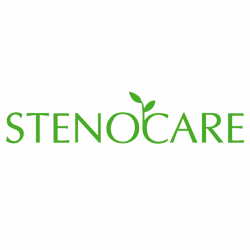Genetic Analysis AS (“Genetic Analysis” or the “Company”) published on May 27th the Company’s Q1-report for 2025.
The following are some key points that we have chosen to highlight in connection with the report:
- Decreasing sales but increasing number of laboratories with the GA-map® system installed
- Improved EBITDA-result through strong gross margin and cost control
- Rights issue to finance commercial investments
- Launch of a new consumer test in China
Lower Sales due to Inventory Level at Partners
The net sales in Q1-25 amounted to NOK 2.4m (3.3), corresponding to a decrease of 27% compared to the same quarter last year. The decrease is attributable to a decrease of 30% in sales of reagent kits, amounting to NOK 2.1m (3.0), while service revenue grew 10% to NOK 0.3m (0.26). During the quarter, sales were negatively impacted by inventory adjustments by partners. As Analyst Group has emphasized in our equity research report, Genetic Analysis remains in an early stage of commercialization, and sales are therefore expected to fluctuate between quarters based on activities and inventory level at partners. After a strong Q4-24, with sales growth amounting to 63%, we see it as natural with a somewhat softer Q1-25, although sales were still a bit weaker than we had anticipated. However, as Genetic Analysis is expected to grow over time, quarterly fluctuations are expected to decrease.
Moreover, it should be mentioned that Genetic Analysis has expanded the number of GA-map® system installations globally and continued the commercial expansion in early 2025. The Company further aims to increase the number of laboratories with the GA-map® system during the remainder of 2025. With the system installed at more laboratories, this is expected to generate growth in recurring revenues from reagent kits, which also has a high margin profile.
Strong Gross Margin and Cost Control Resulted in Improved Result
The gross margin amounted to 84% (77%) during Q1-25, which is an improvement both Y-Y and Q-Q, as the gross margin amounted to 83% in Q4-24. Genetic Analysis has exited instrument sales in Europe, which is expected to have been a low-margin business, why the main contributor to revenues now are the high-margin reagent kits. Moreover, the increased gross margin is attributable to the manufacturing improvement program, which we view positively on.
Operating expenses, excluding depreciation, amounted to NOK 6.7m (8.2), corresponding to a decrease of 17%, which emphasizes a continued strong cost control. The decrease in operating expenses was also attributable to the fact that the IBD project is in a less costly phase. As a result of the increased gross margin and decreased cost base, the EBITDA-result improved to NOK -3.1m (-4.2). Through the increased gross margin and decreased cost base, we estimate a margin expansion going forward with together with sales growth.
Directed Share Issue and Subsequent Offering to Strengthen the Financial Position
The cash position at the end of March amounted to NOK 10.7m and after the quarter’s end Genetic Analysis announced a placement of a directed issue of NOK 12.8m before transactions related costs of NOK 0.6m. The subscription price amounted to NOK 0.86 per share and consisted of 14,890,576 new shares, which equals a dilution effect of approximately 30% for existing shareholders.
The proceeds are intended to be used for commercial investments connected to the existing cooperation with Ferring Pharmaceuticals and other initiatives to increase the presence of the Company’s diagnostic platform GA-map®. Analyst Group considers the announced directed share issue as no major surprise, as we expect the Company to continue to invest in commercial activities for the GA-map® platform, with an increased focus on the US market, which we consider a good strategic investment for the Company’s future growth. Furthermore, we view positively on the decreased financial risk through a strengthened cash position. However, the directed issue results in a dilution effect of 30% for existing shareholders.
Following the publication of the Q1-25 report, Genetic Analysis announced that the previously communicated subsequent offering towards shareholders who were not invited to participate in the directed issue, will go through. This is to give shareholders the opportunity to subscribe for new shares at the same subscription price as applied in the directed issue. Shareholders will have the right to subscribe for one new share for every six (6) existing shares held, at a subscription price of NOK 0.86 per share. The subsequent offering will, given full subscription, contribute with gross proceeds of NOK 7.1m, estimated net proceeds of NOK 6m, further strengthening the cash position.
Launch of a Consumer Test to the Chinese Market
On April 22nd, Genetic Analysis announced that the Company are launching a microbiome test for the Consumer Health (D2C) market in China in collaboration with Thalys Medical Technology Group Corporation (“Thalys”) which will be based on Genetic Analysis clinically validated microbiome test, the GA-map® Dysbiosis Test.
Analyst Group views Genetic Analysis initial launch in the vast and fast-growing Chinese market positively. Thalys is a strong partner for the launch, with expertise in China’s healthcare ecosystem. The risk-reward profile is seen as attractive for Genetic Analysis in a business model where the Company supplies Thalys with reagent kits, while the partner is expected to be responsible for commercialization. Although competition is expected to be intense given the appealing market growth, Genetic Analysis and Thalys are assessed to hold competitive advantages, primarily through the diagnostic approach utilizing the GA-map® platform.
To summarize, Genetic Analysis results during Q1-25 were somewhat weaker than expected, but where sales are expected to fluctuate between quarters as earlier mentioned. Analyst Group argues that nothing has changed in the long-term growth outlook, as the GA-map® system has been installed in an increasing number of laboratories and the beneficial market development is unchanged. Despite the decrease in sales, the strong gross margin and cost control resulted in an improved EBITDA-result.
We will return with an updated equity research report of Genetic Analysis.





